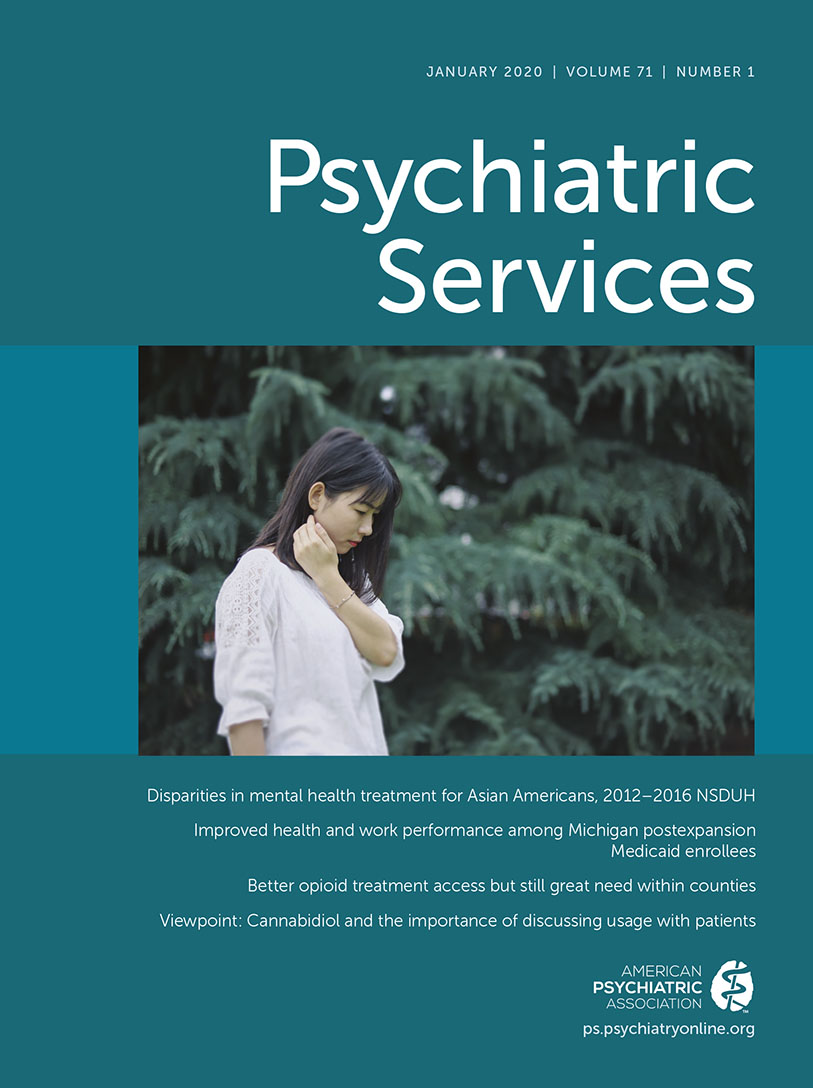Association of Expanded Medicaid Coverage With Health and Job-Related Outcomes Among Enrollees With Behavioral Health Disorders
Abstract
Objectives:
The study objective was to assess the impact of Medicaid expansion on health and employment outcomes among enrollees with and without a behavioral health disorder (either a mental or substance use disorder).
Methods:
Between January and October 2016, the authors conducted a telephone survey of 4,090 enrollees in the Michigan Medicaid expansion program and identified 2,040 respondents (48.3%) with potential behavioral health diagnoses using claims-based diagnoses.
Results:
Enrollees with behavioral health diagnoses were less likely than enrollees without behavioral health diagnoses to be employed but significantly more likely to report improvements in health and ability to do a better job at work. In adjusted analyses, both enrollees with behavioral health diagnoses and those without behavioral health diagnoses who reported improved health were more likely than enrollees without improved health to report that Medicaid expansion coverage helped them do a better job at work and made them better able to look for a job. Among enrollees with improved health, those with a behavioral health diagnosis were as likely as those without a behavioral health diagnosis to report improved ability to work and improved job seeking after Medicaid expansion.
Conclusions:
Coverage interruptions for enrollees with behavioral health diagnoses should be minimized to maintain favorable health and employment outcomes.



